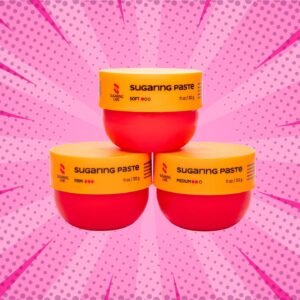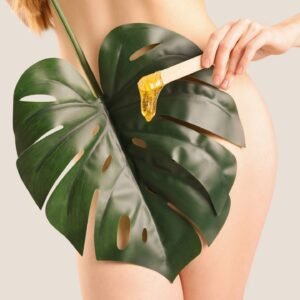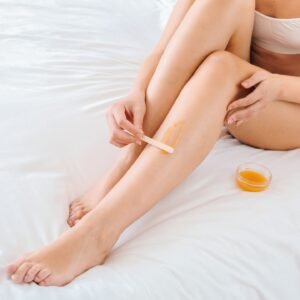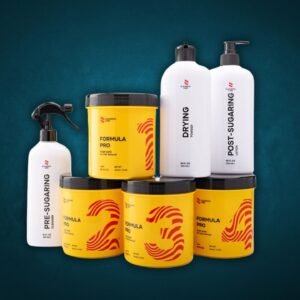Sugar and Lemon Hair Removal Results: Unveiling the Secrets of Lemons in Sugaring Paste
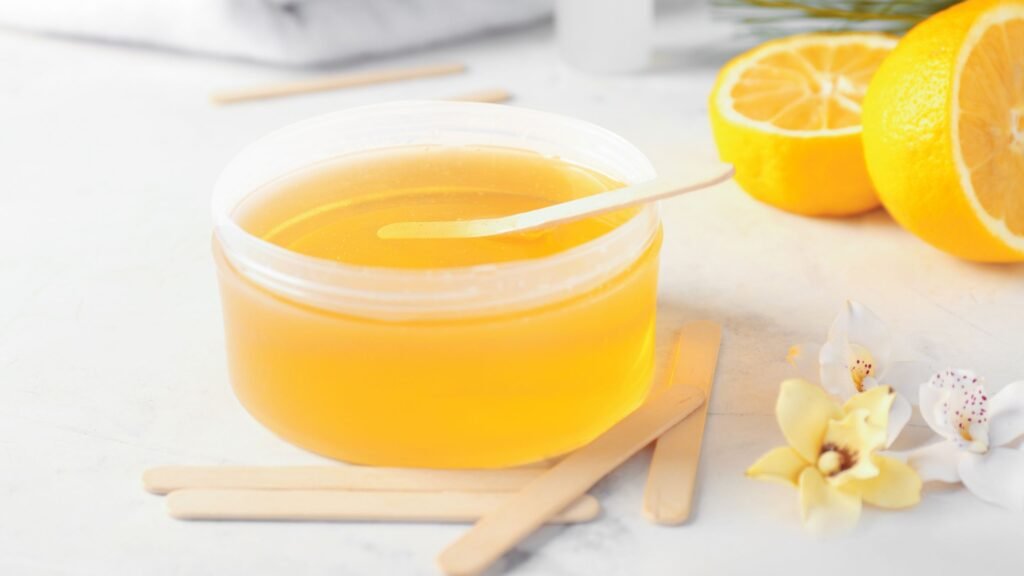
In the realm of beauty and hair removal, sugar and lemon hair removal results often leave people curious about the process behind the production of sugar paste. One of the key ingredients in the process is lemons, which play a crucial role due to their citric acid content. This natural acid is instrumental in breaking down sucrose into glucose and fructose during the production of the paste. However, incorporating lemon juice into the formula presents its own set of challenges and considerations. Vera Pigaleva, a chemical engineer and founder of Sugaring Labs, shares some of the secrets behind making sugaring paste.

Table of Contents
- The Effect of Lemon Juice on Paste Consistency
- Achieving Stability: The Role of Organic Citric Acid
- Evaluating Alternatives: Higher Citric Acid vs. No Citric Acid
- Frequently Asked Questions
- Why is lemon juice used in sugaring paste?
- Can I make sugaring paste at home with lemon juice?
- Does the amount of lemon juice affect the sugaring paste’s performance?
- Are there alternatives to using lemon juice in sugaring paste?
- Can lemon juice irritate the skin during sugaring?
The Effect of Lemon Juice on Paste Consistency
When lemon juice is added, it affects the consistency of the paste. The more lemon juice you add, the softer the paste becomes. However, there is a limit to how much can be added; too much lemon juice can cause rapid oxidation. This not only reduces the usability of the paste, but also requires more frequent changes during use, which can be inconvenient for both practitioner and client.
It’s also important to note that lemons can vary significantly in size and citric acid concentration. Еven though some customers have reported positive sugar and lemon hair removal results, this variability makes it challenging to maintain consistent quality from batch to batch. To ensure reliability and consistency in our products, we use organic citric acid in our professional manufacturing processes. This allows us to achieve a stable formulation without the inconsistencies that natural lemons can introduce.
Achieving Stability: The Role of Organic Citric Acid
Our formula is carefully designed to ensure that citric acid is completely absent from the final product. We use a minimal amount of citric acid-less than 0.1% of the total weight-just enough to facilitate the breakdown of sucrose into glucose and fructose. It is important to note that this citric acid is neutralized during production, so the final product has a neutral pH. This is critical to the stability of the paste as it prevents oxidation and ensures that the paste retains its beneficial properties without negatively impacting your skin.
Using citric acid in controlled amounts allows manufacturers to manage the concentration needed for the breakdown process effectively. Relying solely on lemons can lead to unpredictable results, causing varying consistency in each batch. This inconsistency is unacceptable in professional manufacturing, as clients deserve products that meet high standards consistently. Additionally, those who have used our product report better results than sugar and lemon hair removal results, which further confirms the validity of our methods.
See for yourself the composition of our Sugaring Paste:
Evaluating Alternatives: Higher Citric Acid vs. No Citric Acid
Some formulations contain higher levels of citric acid, which makes the paste softer, but also reduces its durability and effectiveness. This is especially important in professional settings where cost effectiveness is paramount. In addition, some products avoid citric acid altogether, opting instead for separate ingredients such as fructose and glucose. While this may sound appealing, this method tends to be more expensive and does not produce a significantly different product than those that use controlled citric acid.
The commitment to using controlled amounts of organic citric acid in the production of sugar paste allows manufacturers to provide customers with the best possible results at an affordable price. This approach ensures that each batch is of consistent quality, maximizing both performance and satisfaction. With this knowledge, consumers can have confidence in the sugaring products they choose, knowing that they have been made with expertise and care. Ultimately, this results in reliability better than sugar and lemon hair removal, that keep customers coming back.
Frequently Asked Questions
Why is lemon juice used in sugaring paste?
Lemon juice contains citric acid, which helps break down sugar into glucose and fructose during the paste-making process. This chemical reaction is essential for achieving the right consistency and effectiveness of the sugar paste.
Can I make sugaring paste at home with lemon juice?
Yes, you can make sugaring paste at home using lemon juice, sugar, and water. However, achieving the perfect consistency can be tricky due to variations in lemon size and acidity. Professional products often use organic citric acid for more reliable results.
Does the amount of lemon juice affect the sugaring paste’s performance?
Yes, the amount of lemon juice can significantly affect the paste’s consistency. Adding too much lemon juice makes the paste too soft, while too little can prevent the sugar from breaking down properly, impacting the paste’s effectiveness for hair removal.
Are there alternatives to using lemon juice in sugaring paste?
Yes, some manufacturers opt for organic citric acid instead of lemon juice to maintain a consistent formulation. This eliminates the variability of natural lemons, ensuring that each batch of sugaring paste performs reliably without affecting the skin.
Can lemon juice irritate the skin during sugaring?
While lemon juice is a natural ingredient, its acidity can sometimes cause irritation, especially for those with sensitive skin. Using sugaring pastes with controlled citric acid levels helps avoid this issue, providing a more skin-friendly experience.





